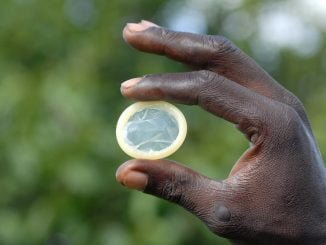
Kampala, Uganda | URN | A total of 157 volunteers have so far enrolled in a study happening in Masaka, one of the sites that have been selected to assess effectiveness of a vaccine against HIV in Africa.
The study dubbed PrEPVACC is also happening in Mbeya and Dar es Salaam in Tanzania, Maputo in Mozambique and Durban in South Africa, but Uganda has so far registered the biggest number of the 1700 total participants they are seeking.
Dr. Eugene Ruzagira, a researcher based at the Uganda Virus Research Institute (UVRI) told this publication in an interview that Uganda has so far enrolled 157 of the 187 total for all sites. 30 have been recruited at the Mbeya site.
They have eligibility criteria whereby for women of child bearing age, they have to be ready to use contraceptives for the duration of the study. In Uganda, the researcher says they are looking to have about 400 participants.
Planned to end in March 2023, the study aims to assess effectiveness of two experimental vaccine candidates and remains the largest trial happening in Africa currently after another promising Imbokodo study was discontinued by an independent board of scientists two weeks ago. Now, Ruzagira says they only hope one of the vaccines work.
Unlike the failed vaccine that had only negative women at risk of HIV infection being given an active experimental vaccine or a placebo, with PrEPVACC, researchers are dividing up the participants into three categories where all of them will be given an oral Pre-Exposure Prophylaxis (PrEP) drug.
Read Also: Cabotegravir jab found effective in offering protection against HIV
Scientists are positive that this design will likely give them positive results considering that the just suspended study had over a hundred volunteers who became HIV positive while taking part in the study.
Commenting on the imbokodo study, Ruzagira said while the results have been disappointing, it provided lessons and that the knowledge attained will move HIV research forward.
Meanwhile, the failure of an HIV vaccine with up to 30 years of research is concerning especially now that the world has speedily acquired COVID-19 vaccines and yet are employing the same technology that has been tested on HIV vaccines that haven’t pulled through trials.
Rugazira says the explanation is scientific and has to do with the nature of the HIV virus which keeps changing, making it hard for scientists to target how best it can be attacked. It’s unclear when for sure the HIV vaccine will be available.



